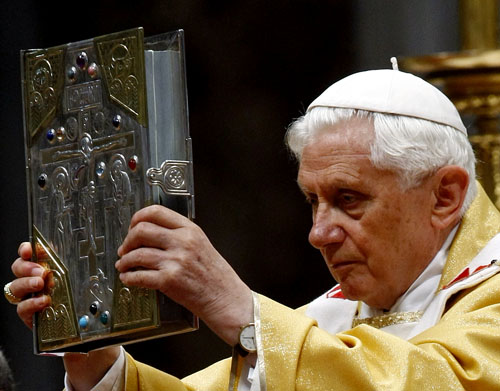Despite the pope’s recent controversial comments on condoms, the Loyola community should not expect changes in the university’s policies.
Pope Benedict XVI’s comments in “Light of the World: The Pope, the Church,” a book by German journalist Peter Sewald, have created buzz about a possible shift in church doctrines. These comments, however, are not official Vatican policy, since it was the pope speaking to a journalist. Also, there is a long process that takes place whenever the church changes one of its stances on an issue.
For decades, the church has firmly stated that contraceptives are immoral and impermissible, as they prevent new life. The pope’s recent comments, though, have nothing to do with preventing new life, and everything to do with disease prevention.
The pope said, “Condoms are not a moral solution,” but, “in cases such as prostitution they could be justified in the intention of reducing the risk of infection.”
The Rev. Kevin Wildes, S.J., president of Loyola University, said there is no need for changes at Loyola.
“This won’t have a direct effect because it’s not doctrine,” Wildes said. “What I hope it will do, not only here, but in other places, like people working in moral theology, is that it gets the conversation going.”
These comments from the pope come only one year after his controversial comments regarding sexually transmitted diseases, where he said the AIDS problem in Africa could not be resolved by distributing condoms.
In Loyola’s case, Wildes said it will not change the way Student Health operates. If a physician recommends contraception to prevent the spread of the disease, it will remain between those two parties.
“Loyola will not interfere in anyone’s medical issues. That is between the individual patient and their physician,” he said. “What goes on between a student and the physician is confidential.”
The Rev. Ted Dziak, S.J., chose not to comment on this issue due to his vow. On the other hand, Kurt Bindewald, director of University Ministry, was free to give his take on the comments.
Bindewald said he agrees with what he has read up to this point, but that one has to remember the context on which Pope Benedict XVI spoke.
“It’s probably one of the more candid and unique viewpoints that we’ve been able to get from the pope in particular,” he said. “I agree it’s just rare to have such a specific statement about such an issue, especially on something the church has been very clear about for so long.”
While Bindewald understands the pope’s comments made to the journalist will not change anything, he said it is a positive view on the issue of condoms.
“It is, in some sense, a breath of fresh air that the church is making a public statement that there is this moral aspect to thinking about people’s health,” Bindewald said. “The issue, however, is that it’s too easy for people to take the pope’s comments saying condoms are OK, and then not taking the responsibility they’re supposed to have about maintaining what a healthy sexual relationship should be about.”
Eduardo Gonzalez can be reached at ejgonzal@loyno.edu






